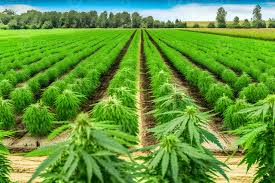
Discover Weed in Jagodina: Exploring the Growing Cannabis Scene in Central Serbia
However, like many cities across the globe, it is also experiencing an evolving narrative around cannabis. In this article, we will explore the relationship between Jagodina and cannabis—looking at its cultivation, consumption, the challenges it faces, and the future of cannabis in this central Serbian city on Discover weed in Jagodina.
Jagodina: An Agricultural Hub with a Rich History
Located in the heart of Serbia, Jagodina is a city that prides itself on its agricultural roots. The city’s agricultural landscape is integral to its economy, with farmers producing everything from cherries and apples to corn and wheat on Discover weed in Jagodina.
In recent decades, Jagodina has seen significant urban development, with industries and services contributing to its growing economic profile. However, agriculture still remains a central pillar of the local economy.
Cannabis cultivation, while still illegal in Serbia, is an activity that has begun to surface in places like Jagodina. Though the plant has long been associated with criminal activity and taboo, there is increasing interest in its economic potential, both within Serbia and on the international market on Discover weed in Jagodina.
The Rise of Cannabis Cultivation in Jagodina
With demand for cannabis increasing both domestically and internationally, it is not surprising that some people in Jagodina have begun to experiment with it on Discover weed in Jagodina.
For farmers in Jagodina, the appeal of cannabis lies in its potential to generate higher returns than traditional crops.
The economic appeal of cannabis is evident in the growing underground market for cannabis products. In Jagodina, as in other parts of Serbia, there is a thriving black market where cannabis is traded.
The Consumption of Cannabis
Cannabis consumption in Jagodina, like much of Serbia, remains relatively clandestine. This perception is compounded by the strict drug laws in Serbia, where cannabis possession and use remain illegal. Despite this, cannabis consumption in Jagodina is becoming more visible, especially among younger generations.
This shift in attitude is part of a wider trend occurring in many countries and regions where public opinion on cannabis use is slowly becoming more positive.
Cannabis is often consumed in private settings—at home, among friends, or in more secluded areas.
Legal Challenges and the Black Market in Jagodina
The biggest challenge for cannabis cultivation and consumption in Jagodina, as with the rest of Serbia, is its illegal status. Serbia has some of the strictest drug laws in Europe, and cannabis is classified as a controlled substance. Individuals caught in possession of cannabis can face significant legal penalties, including fines and imprisonment.
As a result, cannabis cultivation and consumption in Jagodina primarily exist within the black market. Cannabis is bought and sold illegally, often through underground networks that circumvent the law.
The black market, however, also presents problems of its own. Moreover, the involvement of criminal organizations in the illicit cannabis trade can lead to increased violence and instability.
The Future of Cannabis in Jagodina
With cannabis becoming more widely accepted in many parts of the world for both medicinal and recreational use, it is possible that Serbia will eventually follow suit.
In Jagodina, a shift toward legalization could bring significant changes. This could lead to the development of new agricultural sectors, the creation of jobs, and the growth of local businesses catering to cannabis consumers.
For now, however, cannabis remains illegal, and its use and cultivation continue to be discreet in Jagodina. The future of cannabis in the city is uncertain, but the growing interest in the plant suggests that it may soon become a more significant part of the local agricultural and cultural landscape, provided that legal barriers are eventually addressed.
Conclusion
Cannabis in Jagodina represents a microcosm of the wider trends occurring in Serbia and beyond. Although the plant remains illegal, the growing interest in cannabis cultivation and consumption points to a shift in attitudes toward the plant.
Message Greenleafemporium1@gmail.com “There weed is so well-cured that it practically glows, and when I lit up, the smoke was smooth and flavorful without any harshness, which is exactly what I look for.” Highly recommended local plug his telegram / https://t.me/Greenleafemporium1
“Wow’ they have earned my trust by being consistently reliable, providing top-tier products every time and delivering them on time with no fuss.
There service was amazing; they were quick to respond to my questions and made sure everything went smoothly, making the entire process a pleasure from start to finish thank you.
You’ve made me feel like a valued customer every time I’ve ordered, with your quick responses and willingness to help out, I won’t be going anywhere else.
I just got my order, and I have to say, the quality of the buds is absolutely top-notch, with a pungent aroma that immediately let me know I was in for a great experience.